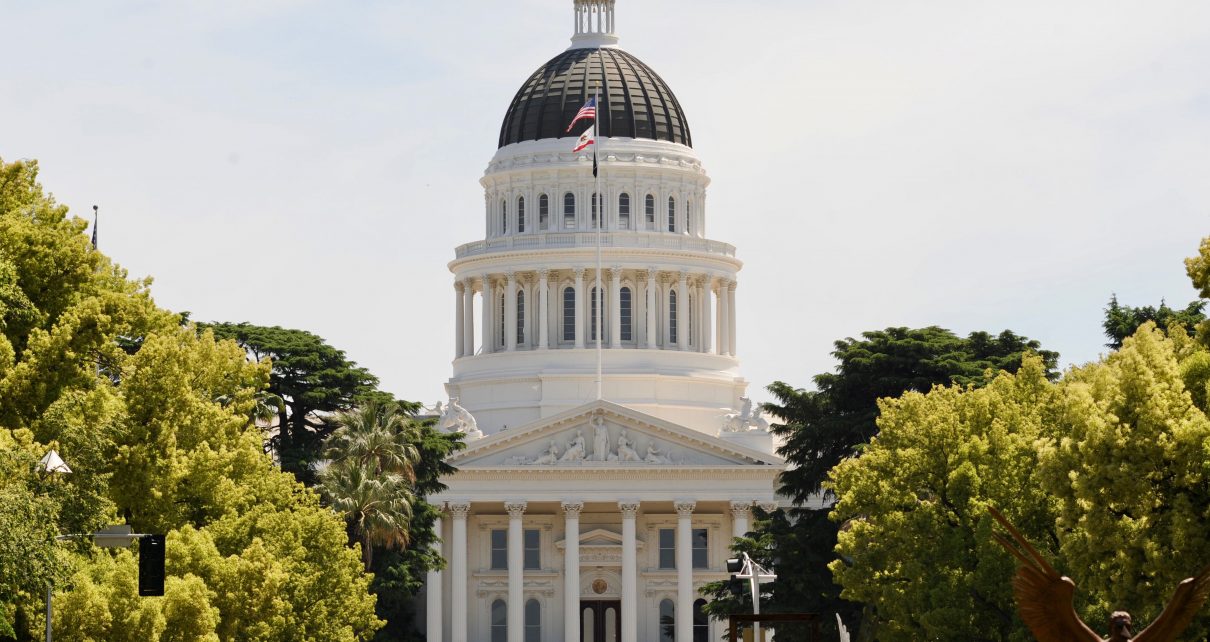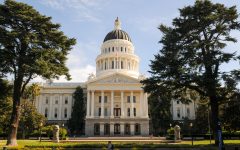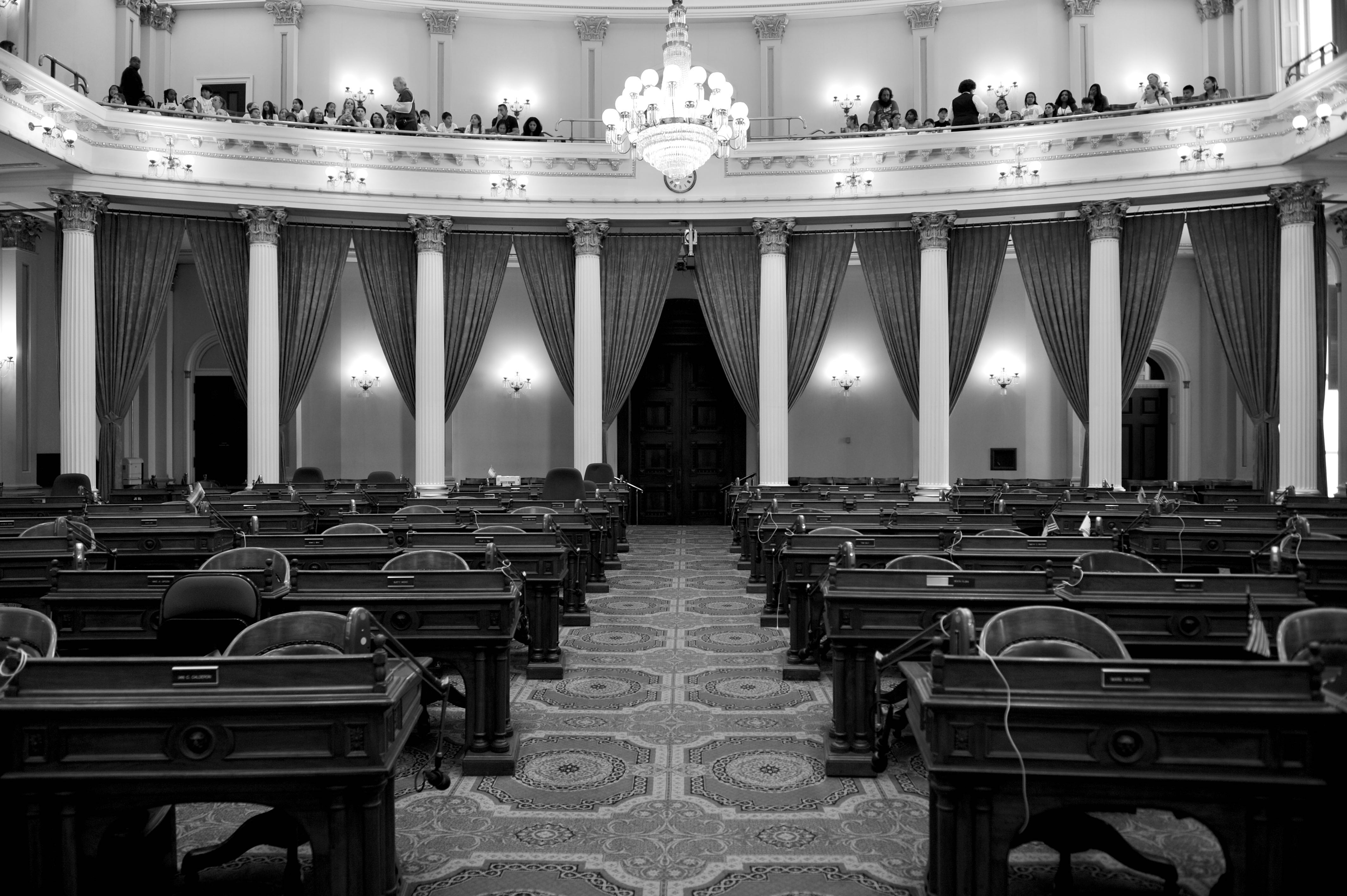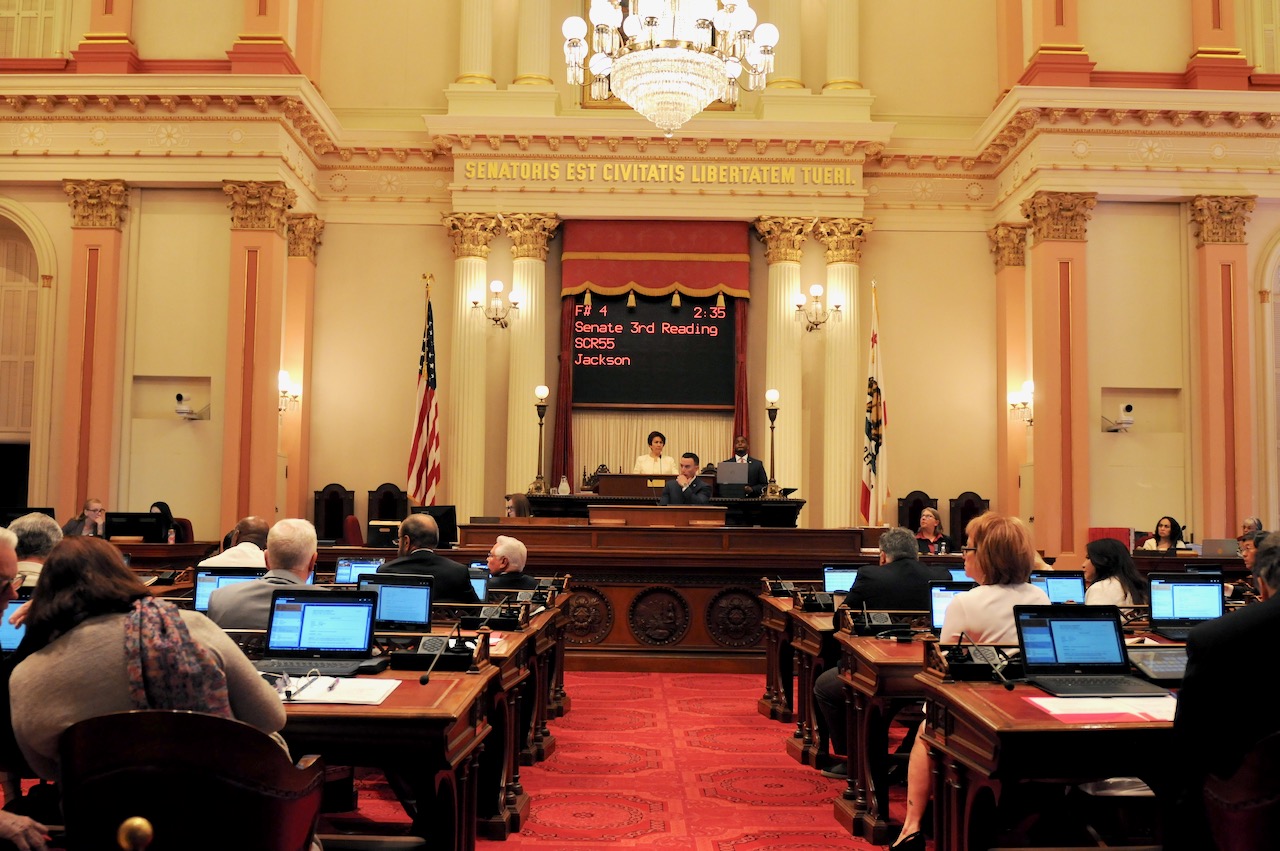
California State Capitol. (Photo: Kevin Sanders for California Globe)
Does SB 681 Further the Purposes of the Political Reform Act?
Which purpose of the PRA is being advanced by this change in the law?
By Chris Micheli, October 12, 2023 2:39 pm
Current California law, in the Political Reform Act of 1974, allows the Legislature to amend provisions of the PRA. Government Code Section 81012 provides, “This title may be amended or repealed by the procedures set forth in this section.” Thereafter, it allows changes when approved by the state’s voters, or by the Legislature.
Section 81012(a) allows the Legislature to amend the PRA “to further its purposes by statute, passed in each house by rollcall vote entered in the journal, two-thirds of the membership concurring and signed by the Governor, if at least 12 days prior to passage in each the bill in its final form has been delivered by the commission (i.e., the Fair Political Practices Commission) for distribution to the news media and to every person who has requested the commission to send copies of such bills to that person.’
Senate Bill 681 would change Subdivision (a) to provide that the bill must be in its final form 8 days before passage in each house, or at least 12 days before passage in each house if the previous form of the bill did not amend the PRA. Query whether this change “furthers the purposes of the PRA?
The stated purpose for this change in SB 681 is set forth in Section 1 and is completely legitimate. And there really is no reason for the final form rule to have been set at 40 days back in 1974 when the voters enacted the PRA. And so, the substance of SB 681 rightfully enjoys bipartisan support. But the issue is whether it is a proper amendment to the PRA.
In other words, if the original version of the PRA as adopted by the voters required a bill to be in print for a minimum of 40 days before the Legislature could vote on a bill amending the provisions of the PRA, is any reduction in the 40-day limitation a proper amendment to the PRA? Would reducing this 40-day limit “further the purposes of the act”?
Government Code Section 81001 provides eight findings and declarations by the People of the State of California when they adopted the PRA. Section 81002 provides six purposes that the People are trying to accomplish by enacting the PRA. Finally, Section 81003 provides that “This title should be liberally construed to accomplish its purposes.”
While there are three statements of intent in Section 1 of SB 681 (see below), Section 3 of SB 681 simply makes a conclusory statement that the bill furthers the purposes of the PRA without any explanation. Which purpose of the PRA is being advanced by this change in the law?
SB 681 provides in Section 1 of the bill the following four legislative findings and declarations in support of its proposed changes to the PRA:
SECTION 1.
The Legislature finds and declares all of the following:
(a) The Political Reform Act of 1974 has an important mechanism that allows amendments that further its purposes to be passed by statute, passed in each house by rollcall vote entered in the journal, two-thirds of the membership concurring and signed by the Governor, as long as the bill, in its final form, has been delivered to the Fair Political Practices Commission for distribution at least 12 calendar days before passage in each house.
(b) Due to how close fiscal committee deadlines are to the end of the legislative session, the requirement that bills amending the act be in print for 12 days often makes it difficult and sometimes impossible to make important amendments before the legislative session ends.
(c) With the speed and ease of electronic communications that were not available when the act was passed in 1974, requiring bills to amend the act to be in their final form for 8 days instead of 12, except for bills that did not amend the act in their previous form, will strike a better balance between providing the news media and the public with enough notice of amendments before final votes and allowing sufficient time to make needed amendments after fiscal committee deadlines.
(d) To ensure that the news media and the public are promptly alerted before new changes to the act are made, the public must have the option to receive quick alerts by email when such changes go to print.
Thereafter, SB 681 provides in Section 4 of the bill the following statement:
SEC. 4.
The Legislature finds and declares that this bill furthers the purposes of the Political Reform Act of 1974 within the meaning of subdivision (a) of Section 81012 of the Government Code.
While the PRA originally contained a 40 day in print rule, the Legislature has twice before decided to lower the threshold. According to the Senate Floor analysis for this bill, “The PRA passed in 1974 originally had a requirement that bills be in print in final form for 40 days, but was amended in 1976 by AB 2607 (Keysor, Chapter 883, Statutes of 1976) down to 20 days and in 1985 by AB 869 (Lancaster, Chapter 1200, Statutes of 1985) down to the current twelve days.”
The analysis goes on to explain that, “Important reforms to the PRA have been impeded by timing conflicts between end-of-session Legislative deadlines and the 12-day final form requirement. The legislative calendar currently makes it difficult for PRA reform bills to succeed at the end of the legislative session with the Appropriations Committee’s Suspense hearings leaving little time for critical amendments. In some instances, the Committee may amend a PRA bill after the 12-day deadline has passed – making it impossible for the Legislature to vote on it. Extended periods for public review of these bills is vital to ensuring government accountability and transparency, however, the current timeline dates back to 1985 before the advent of the modern internet when physical copies of bills were distributed by mail.”
- Should Interpretive Guidance Be Included in California Legislation? - April 28, 2024
- Legislative Intent Does Not Equate to a Mandate - April 27, 2024
- Frequently Asked Questions about State Agency Ethics Training - April 26, 2024




